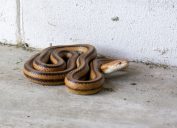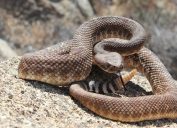5 Ways Snakes Are Destroying Your Backyard, According to Experts
Despite their many benefits, the reptiles can cause a few problems for your property.

Even if you have modest ambitions, a lot of care goes into making your yard look and feel just right. But as with any part of nature, there's always the possibility that animals will start to take up residence on your property—including snakes. And while these reptiles are usually a boon for gardeners and a sign of a healthy ecosystem, they can still cause some potential issues. Read on for all the ways snakes are destroying your backyard, according to experts.
READ THIS NEXT: 9 Ways to Snake-Proof Your Yard, According to Experts.
1
They're using snake holes to hide.
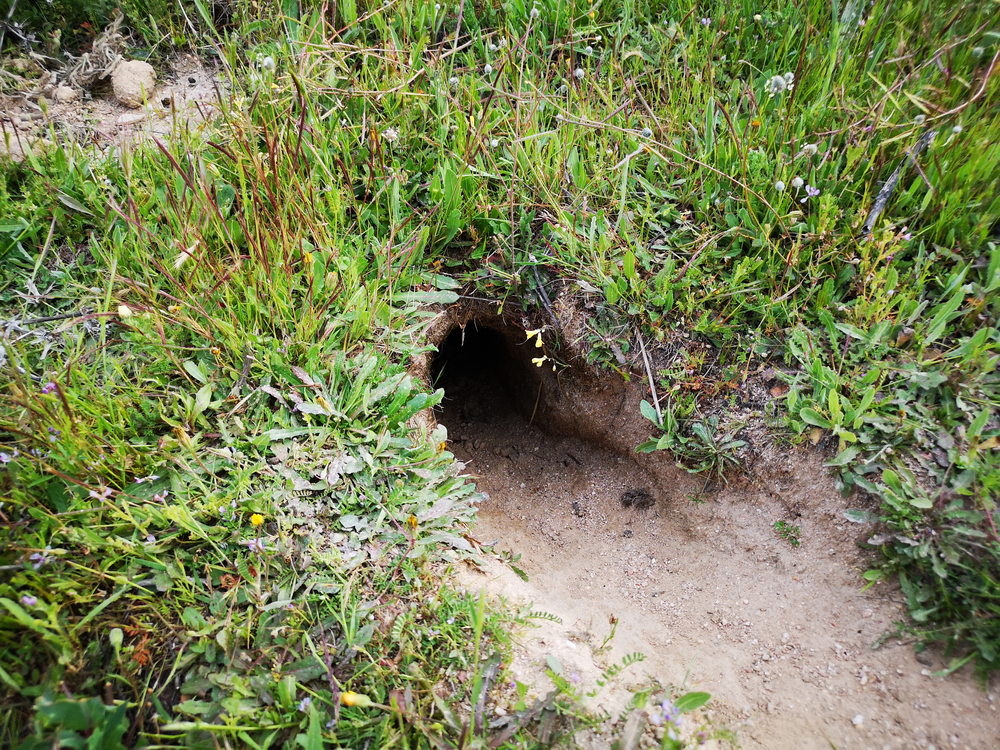
Snakes are shy creatures by nature and typically look for places to hide. In some cases, this can be in leaves, timber piles, rock piles, or tall grass. But occasionally, they can turn to "snake holes" as a hideout—even if it is a somewhat misleading name.
"Snakes do not dig these holes, as they can not burrow themselves," Nick Durieu of Senate Termite & Pest Control explains. "Rather, they are repurposed holes dug by rats, mice, chipmunks, moles, or even groundhogs."
Unfortunately, these can become a problem if they're not dealt with appropriately. "Not only are these holes unsightly, but they can also serve as tripping hazards," warns Durieu. "More importantly, a snake might be sleeping in the hole and get accidentally disturbed, causing it to lash out without you ever seeing it coming."
If you're dealing with these repurposed burrows, it's best to fill them with dirt or cover the entrance with burlap, netting, or wire mesh once you've determined it's empty, according to the experts at BobVila.com.
2
Venomous snakes can make yard work dangerous.
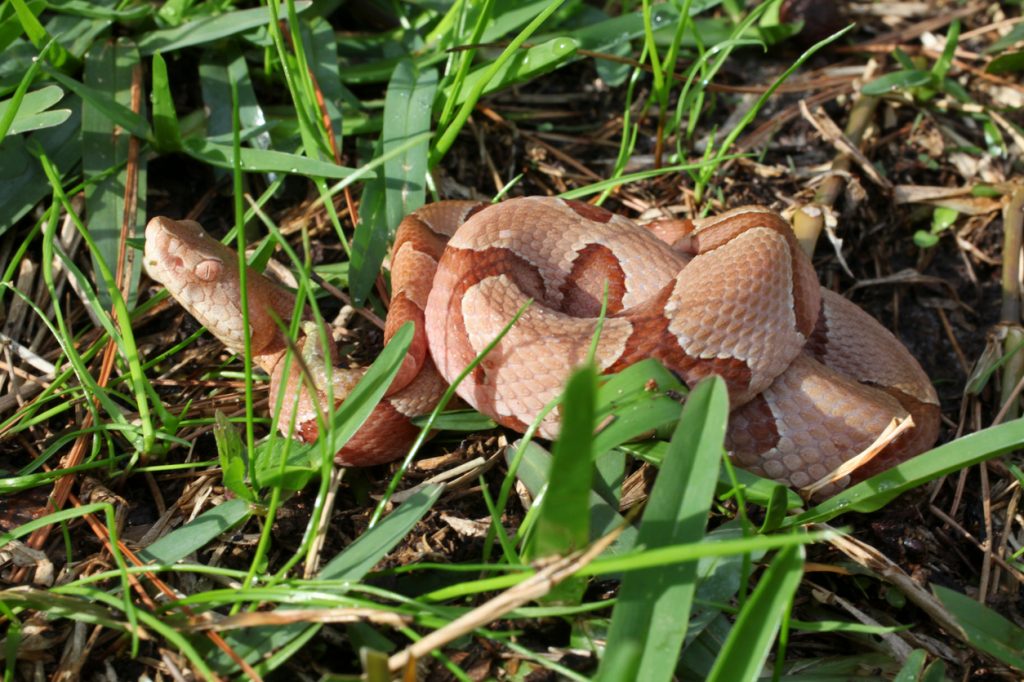
Despite what your fear of them may have you believe, most snakes are harmless if they're left alone. But if one of the venomous varieties has made itself comfortable in your backyard, there's a bit more risk involved.
"The most common venomous snakes you'd find in your yard are copperheads, cottonmouths, and rattlesnakes," says Mark Constantino of Arkadia Pest Control. "These snakes will take care of certain pests around your home, but they can also infect dangerous bites with venom that could lead to a hospital visit."
If you have reason to believe any of the snakes in your yard could be venomous, it's a good idea to stay alert when using your outdoor space. This can also mean using thick gardening gloves and boots when doing yard work and being vigilant about where you're putting your hands and feet.
And ironically, the answer to your snake problem can actually be letting other snakes do their job.
"Some non-venomous snakes will hunt and eat venomous snakes," says Jamie Nichols, a senior service center manager with Arrow Exterminators. "For example, in Georgia, we have Eastern King Snakes, which will hunt and eat copperheads."
READ THIS NEXT: Two Copperhead Bites Reported as Snake Season Begins—Here's Where They Were Hiding.
3
They leave behind excrement.
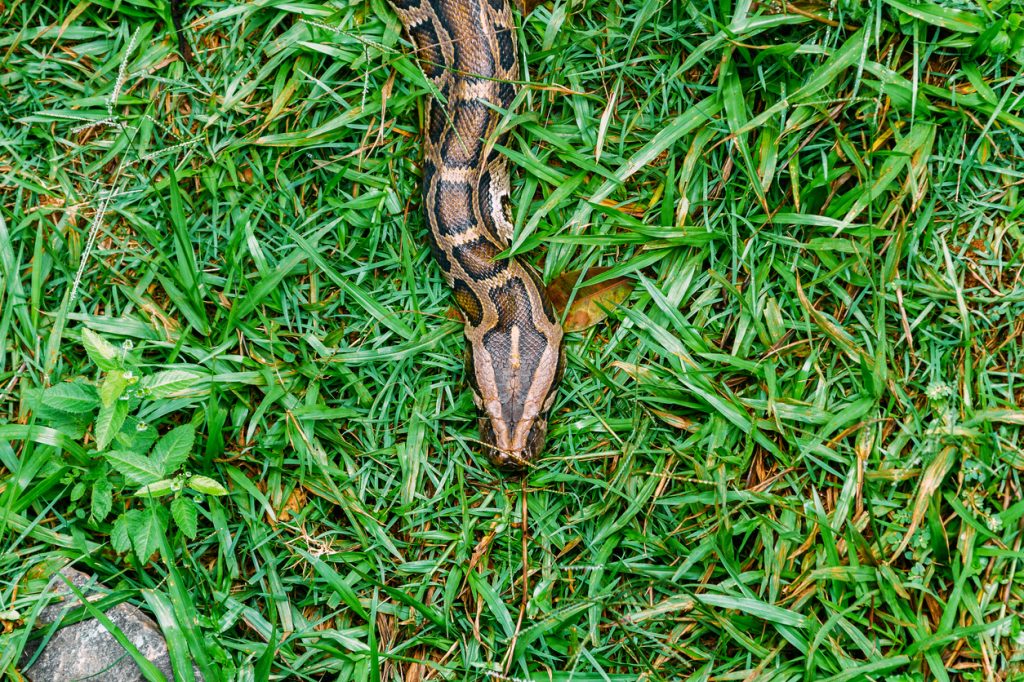
Dealing with droppings can be a full-time chore if you have a pet that uses your backyard to relieve itself. But experts caution that snakes that have snuck onto your property can also leave behind scat.
"Snake excrements contain both a mixture of feces and urine, ranging from solid, oblong logs to white excrements, similar to bids. But they can also contain waste from their prey, including bones, hair, claws, scales, and other parts that were hard to digest," says Durieu.
"These droppings are not only unsanitary but can transmit dangerous diseases such as salmonella, as well as parasites like pentastomiasis or sparganosis," he adds.
4
They can make your yard feel like a danger zone.
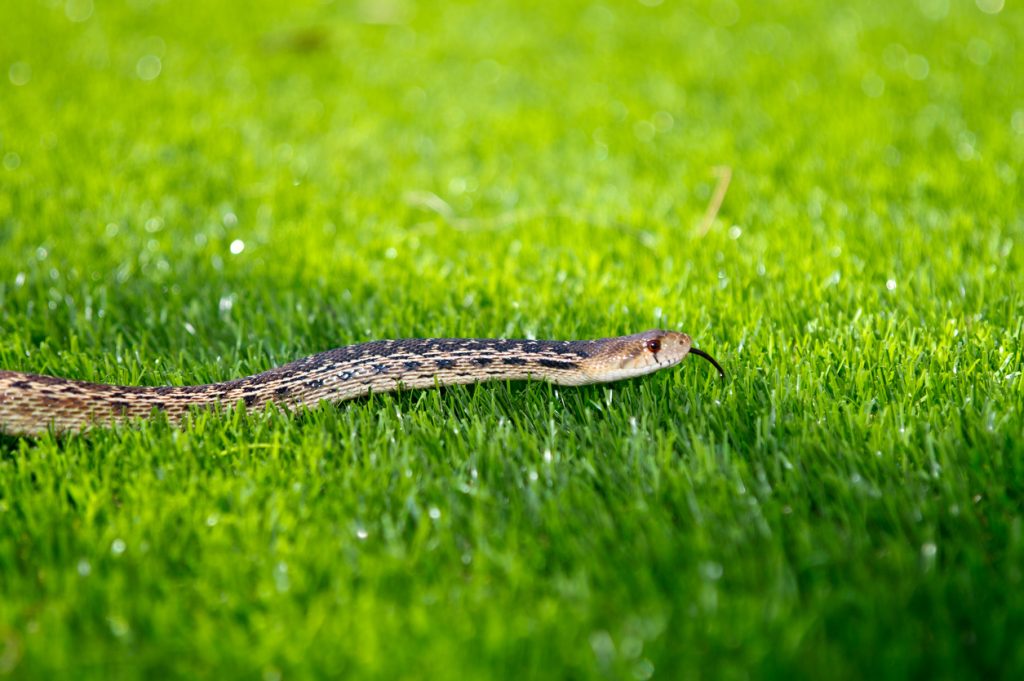
Every part of your home should create a sense of feeling safe and comfortable, including your lawn. But the idea of using your backyard can get ruined pretty quickly if you live in fear of the reptiles that live there.
"Encountering snakes in your backyard can make you and your family feel unsafe due to not knowing why they are there, not being able to positively identify the type of snake you see, and not knowing if you or a family member will get too close to one," says Nichols.
Of course, part the problem with this is that snakes tend to hide out in common areas as well as some of the most inconspicuous places.
"This can surprise you when you open the grill or move the water hose," Nichols says. "These types of surprises are not fun and could lead to injuries while trying to get away, like tripping or falling."
For more home advice delivered straight to your inbox, sign up for our daily newsletter.
5
They're a danger to pets.
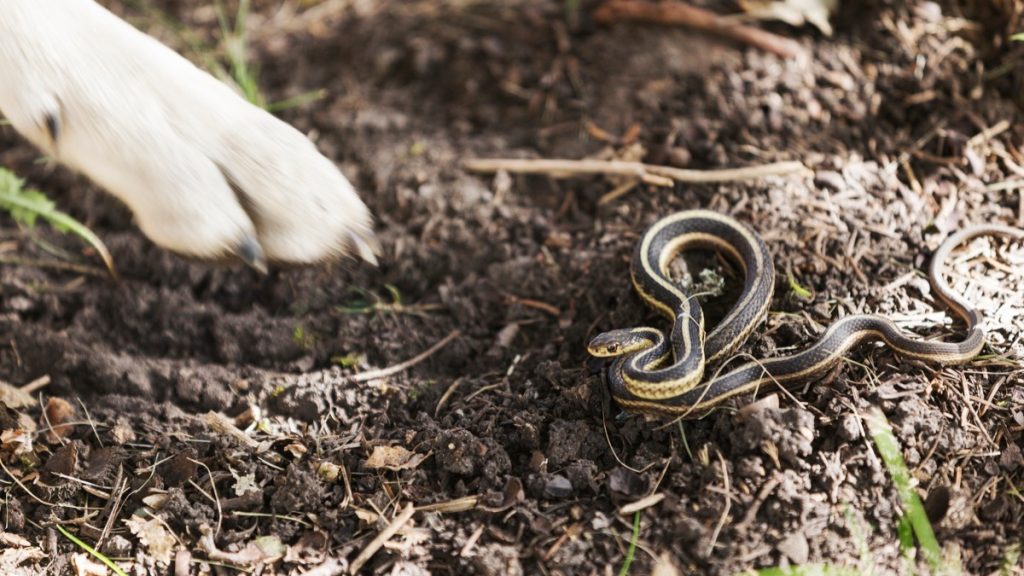
Most pet owners consider their four-legged friends a full-fledged part of the family, meaning their safety and well-being are top priorities. Unfortunately, this can also make sharing a yard with a snake a much riskier proposition.
"Snakes and pets do not often get along with each other, and depending on what type of pet you have and their size, pet injuries could occur," says Nichols. "A venomous snake can even be deadly to some pets."
If you're concerned about a potentially dangerous snake on your property, Nichols suggests calling in a professional to assess conditions on your property. This often means removing clutter like woodpiles, brush piles, dense vegetation, and other ground cover.
